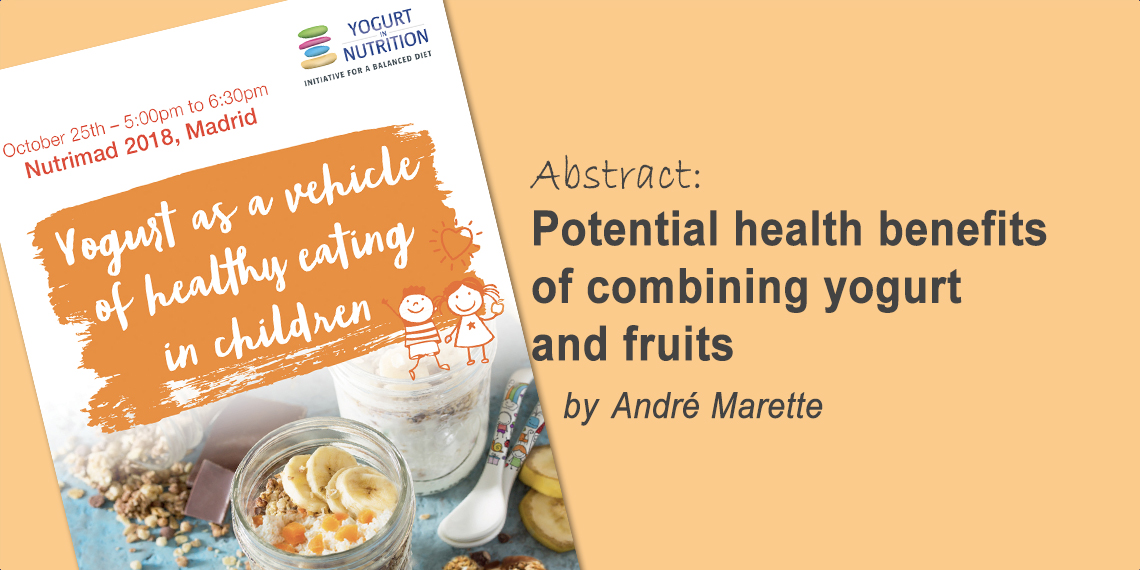The central theme of this new YINI symposium, organized on the 25 October, from 5:00 to 6:30 pm, is “Yogurt as a vehicle of healthy eating in children”. Discover below the abstract of André Marette.
Potential health benefits of combining yogurt and fruits
André MARETTE – Heart and Lung Institute, Laval Hospital / Institute of Nutrition and Functional Foods, Laval University (Canada).
Yogurt is a nutrient rich food containing a combination of nutrients that are important for growth and development during childhood and adolescence. Proper nutrition at these key times promotes health in adulthood. A growing body of evidence further suggests that yogurt consumption is associated with lower body weight gain and reduced risk of type 2 diabetes (T2D) in adults.
As a nutrient-rich fermented dairy food, yogurt provides children with an excellent source of key nutrients for growth and developments. Furthermore, yogurt contains live bacteria and the bioactive bi-products of fermentation are thought to provide additional health benefits, such as favoring a healthy gut microbiota. In addition to containing several key nutrients and bioactives, yogurt can also be viewed as a vector to increase the intake of other foods. In this regard, it can increase the consumption of fruits.
Fruit and yogurt have been identified individually as indicators of healthy dietary patterns. Fruits are relatively low in energy density and are an excellent source of antioxidants and prebiotic fibers and polyphenols, which can promote digestive health. Yogurt on the other hand, is a nutrient dense food that is a good source of dairy protein, calcium, magnesium, vitamin B12, conjugated linoleic acid and other key fatty acids. In addition, it contains beneficial bacterial cultures, making it a potential source of probiotics. Yogurt’s unique fermented food matrix provides added health benefits by enhancing nutrient absorption and digestion.
Combining intakes of yogurt and fruit could provide probiotics, prebiotics, high quality protein, important fatty acids and a mixture of vitamins and minerals that have potential to exert synergistic effects on health. Yogurt consumption has been associated with reduced weight gain and lower incidence of type 2 diabetes, whereas fruits have established effects on reducing the risk for cardiovascular disease. Yogurt and fruits can be eaten together and may exert combined health benefits through potential prebiotic and probiotic effects.
Furthermore, substituting high energy, nutrient deficient snacks with fruit and yogurt could reduce intakes of high calorie obesogenic foods. In light of the positive cardiometabolic impacts of fruit and yogurt and their association to healthy dietary patterns, there is sufficient evidence to warrant further exploration into the potential synergistic health benefits of combined intakes of fruit and yogurt.



